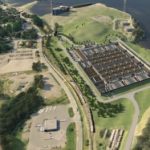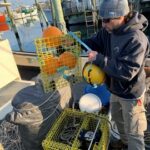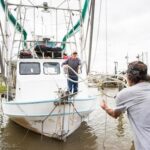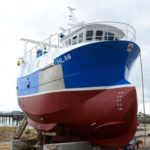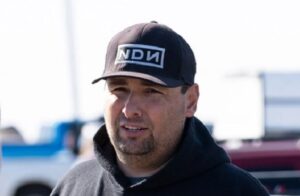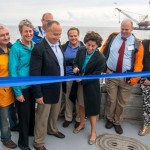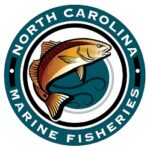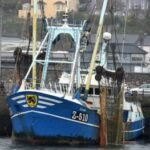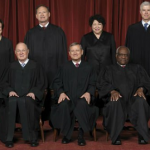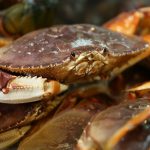Tag Archives: Drew Minkiewicz
‘Relief’ for some, ‘dark moment’ for others: Communities react to Trump’s offshore wind order
 Amid a flurry of executive actions on his first day in office, President Donald Trump sought to put the brakes on offshore wind, halting the federal permitting of wind farms and wind-energy leasing of the Outer Continental Shelf. Members of New Bedford’s scallop fleet — a lucrative fishery that has made the city the top-value fishing port in the country — welcomed Trump’s order. “We finally have been listened to, by someone in an administration,” said Eric Hansen, who owns two New Bedford scallop vessels. “We’ve been fighting wind power for quite some time, and everything seems to be fast-tracked. Now they’re going to take a pause and really look at it.” more, >>CLICK TO READ<< 06:51
Amid a flurry of executive actions on his first day in office, President Donald Trump sought to put the brakes on offshore wind, halting the federal permitting of wind farms and wind-energy leasing of the Outer Continental Shelf. Members of New Bedford’s scallop fleet — a lucrative fishery that has made the city the top-value fishing port in the country — welcomed Trump’s order. “We finally have been listened to, by someone in an administration,” said Eric Hansen, who owns two New Bedford scallop vessels. “We’ve been fighting wind power for quite some time, and everything seems to be fast-tracked. Now they’re going to take a pause and really look at it.” more, >>CLICK TO READ<< 06:51

New England scallopers face a tough 2025
New England scallopers are looking at another tough year in 2025, as they prepare for a set of federal regulations to protect both their livelihoods and the Atlantic Ocean’s scallop populations. If approved by NOAA Fisheries, the new rules, called Scallop Framework 39, will reduce the number of times that full-time vessels can go drag in some federally-managed scalloping grounds — called “access areas” — in the 2025 fishing year. But they will allow these vessels more time to scallop in the open ocean. The start of the access-area scalloping season will also be pushed back from April 1 to May 15, 2025. It will end on March 31, 2026. Local scallopers and industry representatives say the contents of Framework 39 are not a surprise. Landings have been shrinking over the past four years. “We’re just tightening the belt, and taking a deep breath, and riding the storm out,” said New Bedford scallop vessel manager and owner Tony Alvernaz. more, >>CLICK TO READ<< 17:50
Some in seafood industry see Trump as fishermen’s friend, but tariffs could make for pricier fish
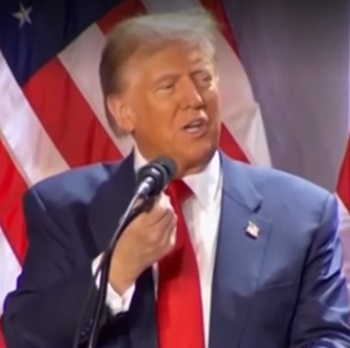 The incoming administration of President-elect Donald Trump is likely to bring big changes for one of the oldest sectors of the U.S. economy, seafood, and some in the industry believe the returning president will be more responsive to its needs. Economic analysts paint a more complicated picture, as they fear Trump’s pending trade hostilities with major trading partners Canada and China could make an already pricy kind of protein more expensive to consumers. Conservationists also fear Trump’s emphasis on government deregulation could jeopardize fish stocks that are already in peril. But many in the commercial fishing and seafood processing industries said they are excited for Trump’s second presidency. They said they expect he’ll allow fishing in protected areas as he did in his first presidency, crack down on offshore wind expansion and cut back regulations they describe as burdensome. And they expect a marked shift from the administration of President Joe Biden, who prioritized ocean conservation and championed wind power from the start. Video, more, >>CLICK TO READ<< 10:26
The incoming administration of President-elect Donald Trump is likely to bring big changes for one of the oldest sectors of the U.S. economy, seafood, and some in the industry believe the returning president will be more responsive to its needs. Economic analysts paint a more complicated picture, as they fear Trump’s pending trade hostilities with major trading partners Canada and China could make an already pricy kind of protein more expensive to consumers. Conservationists also fear Trump’s emphasis on government deregulation could jeopardize fish stocks that are already in peril. But many in the commercial fishing and seafood processing industries said they are excited for Trump’s second presidency. They said they expect he’ll allow fishing in protected areas as he did in his first presidency, crack down on offshore wind expansion and cut back regulations they describe as burdensome. And they expect a marked shift from the administration of President Joe Biden, who prioritized ocean conservation and championed wind power from the start. Video, more, >>CLICK TO READ<< 10:26
Fishermen celebrate Trump: ‘Government has crucified this industry’
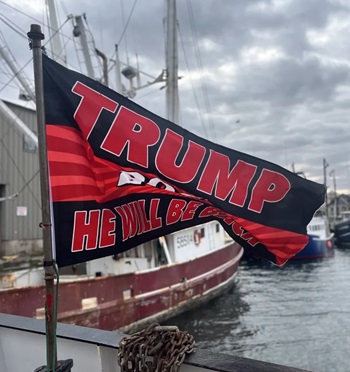 He didn’t win New Bedford, where Vice President Kamala Harris held a margin of 2,688 votes. But the city’s fishermen have dug in with their support for the president-elect. Fishermen on the New Bedford waterfront met the news of a second Trump term with vengeful enthusiasm on Wednesday morning. There was hope that the president-elect would scale back regulation, stop offshore wind development and open new fishing grounds, breaking the slump of declining revenues and ushering in a period of relative prosperity for the industry. “The government has crucified this industry,” said Ryan Turner, 47, who on Wednesday morning was preparing to leave on a scallop trip. He said this election was the first in which he had ever cast his vote. Between Harris and Trump, he said, “I didn’t like either one. I voted because we needed someone in office who is going to get rid of these windmills.” more, >>CLICK TO READ<< 18:17
He didn’t win New Bedford, where Vice President Kamala Harris held a margin of 2,688 votes. But the city’s fishermen have dug in with their support for the president-elect. Fishermen on the New Bedford waterfront met the news of a second Trump term with vengeful enthusiasm on Wednesday morning. There was hope that the president-elect would scale back regulation, stop offshore wind development and open new fishing grounds, breaking the slump of declining revenues and ushering in a period of relative prosperity for the industry. “The government has crucified this industry,” said Ryan Turner, 47, who on Wednesday morning was preparing to leave on a scallop trip. He said this election was the first in which he had ever cast his vote. Between Harris and Trump, he said, “I didn’t like either one. I voted because we needed someone in office who is going to get rid of these windmills.” more, >>CLICK TO READ<< 18:17
Fishermen, fleet owners hope Trump helps their industry
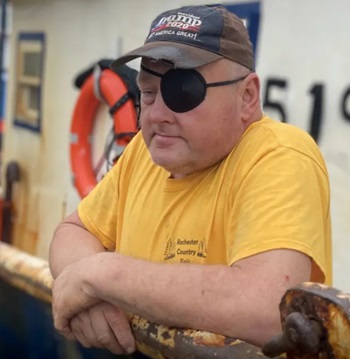 New Bedford fishermen fly many flags. There is the American flag, the skull and crossbones flag. There are flags expressing resistance to offshore wind development. And there are many — many — flags for former President Donald Trump. But one flag is rarely hoisted on the New Bedford waterfront. “I have yet to see a Harris-Walz flag on a fishing vessel,” said Drew Minkiewicz, an attorney representing the industry’s Sustainable Scalloping Fund. The vast support for Trump among fishermen boils down to a few main points, some specific to the fishing industry, some not. Trump has said that he would overturn the ban on commercial fishing in Marine National Monuments, which was first enacted by the Obama administration, repealed by Trump and then re-established under President Joe Biden. There are frustrations with immigration policy and with inflation, especially with gas and food, which have an acute impact on the profits of a fishing trip. But no issue has swayed the politics of the fishing industry more than offshore wind development. more, >>CLICK TO READ<< 18:50
New Bedford fishermen fly many flags. There is the American flag, the skull and crossbones flag. There are flags expressing resistance to offshore wind development. And there are many — many — flags for former President Donald Trump. But one flag is rarely hoisted on the New Bedford waterfront. “I have yet to see a Harris-Walz flag on a fishing vessel,” said Drew Minkiewicz, an attorney representing the industry’s Sustainable Scalloping Fund. The vast support for Trump among fishermen boils down to a few main points, some specific to the fishing industry, some not. Trump has said that he would overturn the ban on commercial fishing in Marine National Monuments, which was first enacted by the Obama administration, repealed by Trump and then re-established under President Joe Biden. There are frustrations with immigration policy and with inflation, especially with gas and food, which have an acute impact on the profits of a fishing trip. But no issue has swayed the politics of the fishing industry more than offshore wind development. more, >>CLICK TO READ<< 18:50
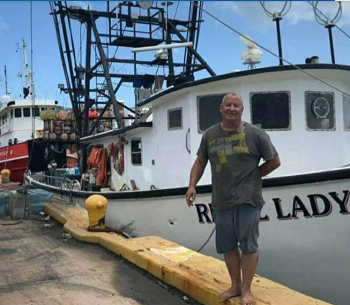
New Jersey family fighting for return of fisherman jailed in British Virgin Islands
His family is now scrambling to free him, including asking the U.S. government and Secretary of State Mike Pompeo for help,,, According to the British Virgin Islands Office of the Director of Public Prosecutions, on June 8, Fisherman Michael Foy, 60, of Stafford Township, was caught in territorial waters near Peter Island and Norman Island by Her Majesty’s Customs. Foy was the captain of the commercial fishing vessel Rebel Lady, which was carrying 7,000 pounds of fish. Also on board were Indonesian nationals, who could not speak English and were holders of C-11 transit visas, which are only applicable to persons working on a fishing vessel. >click to read< 15:15
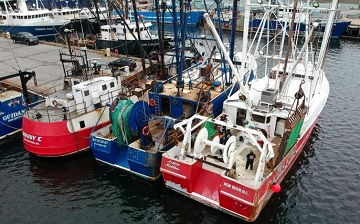
Fishermen face uphill battle in lawsuit over New York wind site
Fishermen and the city of New Bedford are facing an uphill battle in their fight against a New York offshore wind location after losing a lawsuit in September. Attorney David Frulla, who represents the Fisheries Survival Fund and other plaintiffs in the case, said he was disappointed at the court decision but has not given up. “I just don’t think the judge understood that these leases aren’t theoretical, that they actually confer rights,” he said. >click to read< 09:46
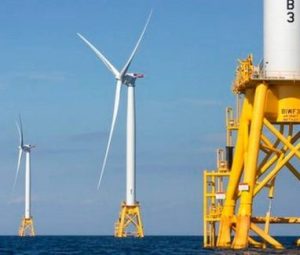
Opponents say Block Island wind farm is causing problems across prime fishing grounds
The five enormous turbines that have been generating electricity off Block Island over the past year are considered a model for the future of offshore wind. But the nation’s first ocean-based wind farm also has exposed what fishermen say are serious threats to them caused by scattering massive metal shafts and snaking underwater cables across prime fishing grounds.,,, Wind power companies have dismissed most of their concerns, and fishermen have become increasingly frustrated, saying that they’re being ignored.>click to read<09:38
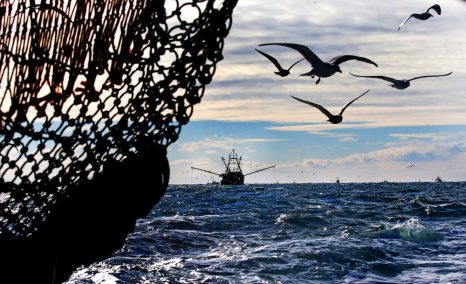
Federal regulators put an end to turbulent season in northern Gulf of Maine scallop fishery
Federal authorities are closing the scallop fishery in the northern Gulf of Maine at 12:01 a.m. Thursday after a contentious three-week season that pitted the interests of part-time, small-boat fishermen from Maine against large, full-time scallop operators. Fisheries regulators announced the closure Wednesday after small-boat fishermen – many of them Maine lobstermen operating 40- to 45-foot boats – met their annual quota of 70,000 pounds. The developments do not apply to the scallop fishery in state waters, which extend to 3 miles from shore. This year’s federal harvest has been contentious because the large, full-time boats are believed to have caught more than 1 million pounds of scallops in the northern Gulf of Maine scallop fishing area, but owing to a quirk in federal rules the fishery could not be closed until the small vessels caught 70,000 pounds. This month’s storms and unseasonable weather had kept the small boats in port, delaying their ability to meet their annual quota and close the area to the larger vessels, who were permitted to continue harvesting large quantities of scallops under federal rules. continue reading the story here 07:57
Small-boat scallop fishermen worry about being overwhelmed by larger boats in the Gulf of Maine
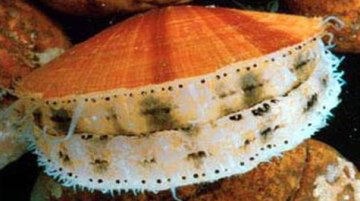 Since the start of the scallop season this month, Jim Wotton has dragged heavy dredges along the seabed off Gloucester, hauling in as much as 200 pounds a day of the valuable clams, the area’s federal limit for small-boat fishermen. Now, to his dismay, dozens of larger, industrial-sized boats have been steaming into the same gray waters, scooping up as many scallops as they can. Unlike their smaller counterparts, the large vessels have no quota on the amount they can catch; they’re only limited by the number of days they can fish.,, NOAA officials acknowledge the fishermen’s concerns, but have declined to take emergency action to close the fishery.,, Representatives of the larger boats say they have every right to fish in the area, and insist their catch won’t threaten the fishery.,, “The situation this year can’t continue and support a strong fishery year in and year out in the Gulf of Maine,” said Pete Christopher, a supervisory fishery policy analyst at NOAA Fisheries. “The council needs to change the way the fishery operates.” read the story here 18:52
Since the start of the scallop season this month, Jim Wotton has dragged heavy dredges along the seabed off Gloucester, hauling in as much as 200 pounds a day of the valuable clams, the area’s federal limit for small-boat fishermen. Now, to his dismay, dozens of larger, industrial-sized boats have been steaming into the same gray waters, scooping up as many scallops as they can. Unlike their smaller counterparts, the large vessels have no quota on the amount they can catch; they’re only limited by the number of days they can fish.,, NOAA officials acknowledge the fishermen’s concerns, but have declined to take emergency action to close the fishery.,, Representatives of the larger boats say they have every right to fish in the area, and insist their catch won’t threaten the fishery.,, “The situation this year can’t continue and support a strong fishery year in and year out in the Gulf of Maine,” said Pete Christopher, a supervisory fishery policy analyst at NOAA Fisheries. “The council needs to change the way the fishery operates.” read the story here 18:52
Fishermen at odds over impact of Trump executive order
 An executive order by President Donald Trump designed to radically cut back on federal regulations has spurred disagreement among fishermen about how it will affect them — and lawmakers and regulators aren’t sure what the answer is. Groups that represent both commercial and recreational fishermen are divided over whether Trump’s “one in, two out” approach to federal regulations will benefit their industry, harm it or not affect it at all.,, Several fishing groups, ranging from the Alaska Longline Fishermen’s Association to the Massachusetts Striped Bass Association, are joining Democratic Reps. Jared Huffman of California and Raul Grijalva of Arizona in asking Trump to rescind.,, Other industry interests, including the Fisheries Survival Fund, said the order will likely leave fisheries unaffected. The order would apply only to financially significant regulations, and that would not include things like opening fishing seasons and enforcing catch limits, said Drew Minkiewicz, an attorney for the fund. “All this talk about how you’re not going to be able to manage fisheries — not true, doesn’t apply, not going to happen,” he said. Read the full story here 15:04
An executive order by President Donald Trump designed to radically cut back on federal regulations has spurred disagreement among fishermen about how it will affect them — and lawmakers and regulators aren’t sure what the answer is. Groups that represent both commercial and recreational fishermen are divided over whether Trump’s “one in, two out” approach to federal regulations will benefit their industry, harm it or not affect it at all.,, Several fishing groups, ranging from the Alaska Longline Fishermen’s Association to the Massachusetts Striped Bass Association, are joining Democratic Reps. Jared Huffman of California and Raul Grijalva of Arizona in asking Trump to rescind.,, Other industry interests, including the Fisheries Survival Fund, said the order will likely leave fisheries unaffected. The order would apply only to financially significant regulations, and that would not include things like opening fishing seasons and enforcing catch limits, said Drew Minkiewicz, an attorney for the fund. “All this talk about how you’re not going to be able to manage fisheries — not true, doesn’t apply, not going to happen,” he said. Read the full story here 15:04
For fisheries regulations, a Trump edict signals uncertainty
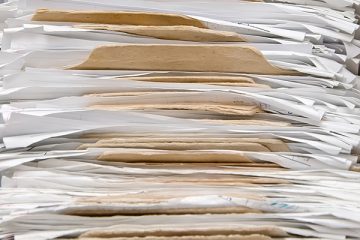 New England fishermen and conservationists fear one of President Trump’s executive orders will have disruptive effects on fisheries management, although it will not affect routine seasonal fisheries regulation, as some had initially feared. The order prompted a fiery letter three days later from two prominent Democratic congressmen pointing out it could have “devastating impacts on commercial and recreational fisheries and the businesses and communities they support.” “Effectively what it means is that nobody can do anything because agencies will have to stop doing major regulatory actions because you can’t comply with this order, which may be the point,” says a former top federal fisheries management official, Andrew Rosenberg, who is now director of the Center for Science and Democracy at the Union of Concerned Scientists. Drew Minkiewicz, a Washington, D.C., lawyer representing larger Eastern Seaboard scallop fishermen, says fishermen need not be concerned about most regulations. “This executive order has zero impact on 99.9 percent of the fishing regulations going out, so people who are wondering if the fishing season will be delayed don’t need to,” he says. “It’s much ado about nothing.” Read the article here 08:39
New England fishermen and conservationists fear one of President Trump’s executive orders will have disruptive effects on fisheries management, although it will not affect routine seasonal fisheries regulation, as some had initially feared. The order prompted a fiery letter three days later from two prominent Democratic congressmen pointing out it could have “devastating impacts on commercial and recreational fisheries and the businesses and communities they support.” “Effectively what it means is that nobody can do anything because agencies will have to stop doing major regulatory actions because you can’t comply with this order, which may be the point,” says a former top federal fisheries management official, Andrew Rosenberg, who is now director of the Center for Science and Democracy at the Union of Concerned Scientists. Drew Minkiewicz, a Washington, D.C., lawyer representing larger Eastern Seaboard scallop fishermen, says fishermen need not be concerned about most regulations. “This executive order has zero impact on 99.9 percent of the fishing regulations going out, so people who are wondering if the fishing season will be delayed don’t need to,” he says. “It’s much ado about nothing.” Read the article here 08:39

































